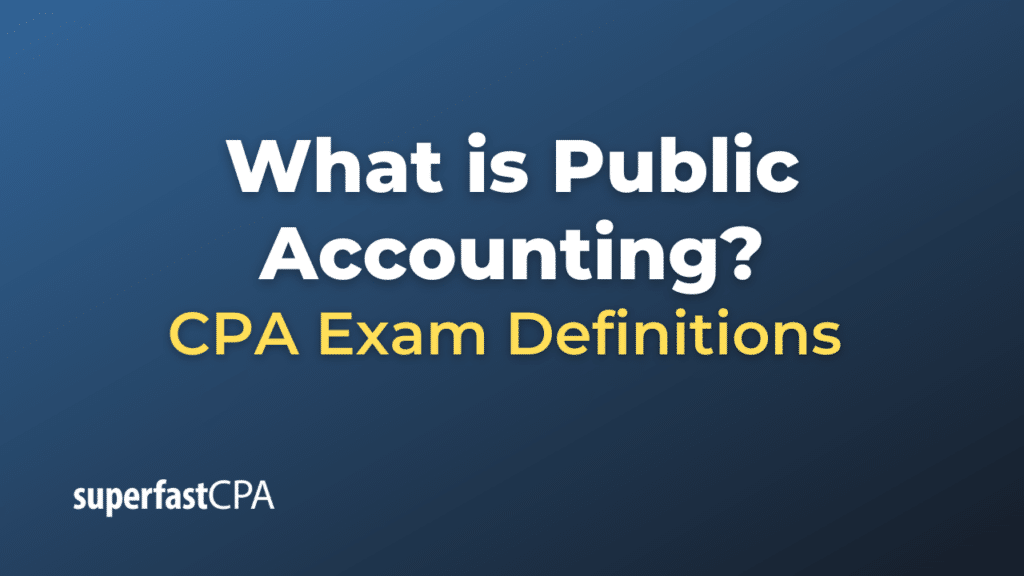Public Accounting
Public accounting refers to a field of accounting where accounting professionals provide a range of accounting services to businesses, individuals, nonprofits, and government agencies. These services include preparation, review, and auditing of the clients’ financial statements; tax work including the preparation of income tax returns; and consulting and advice on accounting systems and controls, mergers and acquisitions, and various other financial aspects.
Public accounting firms range from small local accounting practices to large international organizations. The largest public accounting firms, known as the “Big Four,” include Deloitte, Ernst & Young (EY), KPMG, and PricewaterhouseCoopers (PwC).
Public accountants can obtain a certification as a Certified Public Accountant (CPA), which is earned by passing the Uniform CPA Examination and meeting state education and work experience requirements. This certification enhances their credibility and signifies a certain level of expertise in the field of accounting.
Public accounting can be differentiated from private (or managerial) accounting, which involves working within a company and providing internal accounting services such as cost accounting, budgeting, internal auditing, and financial analysis.
Example of Public Accounting
Imagine a manufacturing company, SteelCo. As part of its regulatory obligations and to provide assurance to its stakeholders, SteelCo needs to have its financial statements audited annually. To do this, SteelCo hires a public accounting firm, say PricewaterhouseCoopers (PwC).
PwC assigns a team of auditors to SteelCo. The auditors review SteelCo’s accounting records, financial statements, and internal controls. They verify the accuracy of the financial statements and ensure they’re prepared according to the relevant accounting standards, such as Generally Accepted Accounting Principles (GAAP) or International Financial Reporting Standards (IFRS).
After thorough examination, if the auditors find the financial statements give a true and fair view, they provide an audit report that includes an unqualified opinion. This report is attached to SteelCo’s financial statements and gives credibility to the information, increasing trust among investors, creditors, and other stakeholders.
Additionally, PwC may offer tax services to SteelCo, assisting in the preparation and filing of tax returns, providing advice on tax planning and strategies to minimize tax liability within the legal framework.
This is a simplified example of how a public accounting firm operates. Depending on the client’s needs and the firm’s expertise, the range of services can be much broader, including management consulting, risk assurance, forensic accounting, and more. The key point is that the public accounting firm is an external entity providing services to clients, unlike private accounting which happens internally within a company.













